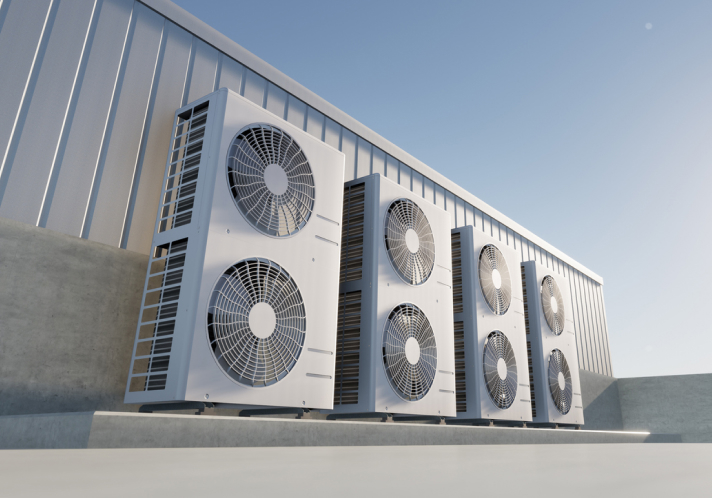If you are wondering how electric hot water heaters function or whether they’re the best choice for your home, we have the answers for you. Understanding how a hot water system works will help you make the best decision when choosing the right one for your needs.
In this blog, we’ll explain the details of electric hot water systems, including the types, their benefits, limitations, and how they work.
How Do Electric Hot Water Systems Work
An electric hot water heater is one of the most commonly used water heating solutions in Australian homes due to its reliability and low upfront cost.
With electric hot water systems, electricity is used to power heating elements inside the unit. The water is heated to a preset temperature, ready to be used for daily tasks.
There are mainly two types of electric hot water systems:
- Electric Storage Tank Systems
- Instantaneous (On-Demand) Electric Hot Water Systems
Electric Hot Water Tank: How Does It Operate?
Electric hot water tanks, also known as storage water heaters, are the traditional solution for heating water. They consist of a tank where water is stored and heated continuously to a desired temperature.
Here’s how an electric hot water tank works:
- Cold water enters the storage tank, where an electric element heats it and maintains the set temperature until it’s needed.
- When you turn on a hot tap, the stored hot water is released and replaced with fresh cold water, which is then reheated so the tank stays ready for the next use.
Electric hot water tanks have an insulated layer to retain the heat, ensuring that the water remains warm for an extended period.
Instantaneous Electric Hot Water System: How It Functions
Instantaneous or on-demand electric hot water systems provide hot water only when needed. Instead of storing hot water in a tank, these systems heat water as it passes through the unit. This method uses a heat exchanger to warm up the water instantly.
Here’s the step-by-step process of how an instantaneous electric hot water system works:
- When you turn on a hot tap, cold water enters the unit and the heating element immediately powers on.
- As the water flows through, it’s heated instantly and delivered straight to your tap, shower, or appliance.
- The moment you turn the tap off, the system stops running, ensuring no energy is wasted.
Instantaneous systems are energy-efficient, as they heat water only when needed. This means they don’t waste energy by storing water, making them ideal for homes with smaller hot water needs or where space is limited.
The Benefits and Limitations of Electric Hot Water Systems
Electric hot water heaters are the go-to option for many homeowners, but are they the best choice for you? Let’s take a closer look.
- Lower Upfront Costs: Electric water heaters are more affordable to purchase and install compared to other types of water heaters.
- Space-Saving Options: While traditional storage tanks can take up a lot of room, instantaneous electric heaters are compact and can be installed in smaller spaces.
- Reliable Performance: Electric hot water heaters provide consistent and reliable performance for everyday use.
- Ease of Installation: Most homes are already set up for electric systems, meaning the hot water system installation is simple and doesn’t require complex modifications.
- Higher Running Costs: One downside is that electric systems can be expensive to run, especially if you’re using a storage tank.
Is Electric System the Right Choice for Your Hot Water Needs?
Now that you know how electric hot water systems work, you might wonder if it’s the best choice for your home. If you’re looking for a reliable, low-cost, and easy-to-install solution, an electric hot water system is the right fit. Electric systems are more affordable to buy and install than gas or solar options, making them a budget-friendly choice.
They also offer reliable performance, providing hot water whenever you need it without relying on gas or weather conditions. However, if you’re in an area with high electricity prices or experience frequent power outages, it might be worth considering alternatives like gas or solar hot water systems, especially solar, which not only reduces reliance on the grid but also lowers your carbon footprint.
Many electric hot water systems can be set to heat water during off-peak electricity hours, when demand on the grid is lower and power is cheaper. This happens at specific times set by your energy provider. By heating and storing hot water during these periods, you can significantly cut down on running costs compared to heating water during peak times.
Conclusion
At the end of the day, choosing the right hot water system for your home depends on your needs, budget, and energy preferences. If you’re unsure about which option suits you best or need professional help with installation, our team at 24 Hour Trade Services is here to assist with electric hot water service.
Contact us today for expert advice and installation. Call us at 1300 229 897 or fill out our online form for a quick response. We’ll guide you through the process and ensure you get the perfect solution for your hot water needs.
















